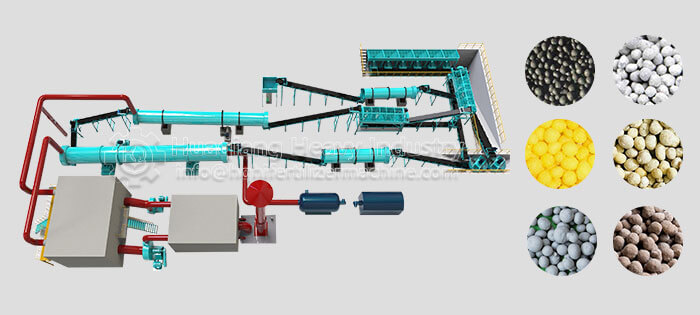
With organic agriculture rapidly expanding today, NPK fertilizer production lines provide precise nutrient support for organic cultivation by scientifically blending the three essential elements – nitrogen, phosphorus, and potassium. They act as a crucial link connecting traditional and organic farming.
1.Enabling Precise Nutrient Supply for Organic Cultivation
Conventional organic fertilizers face issues like slow nutrient release and imprecise ratios. Modern NPK production lines can create:
Organic-inorganic compound fertilizers (Organic matter ≥20%, NPK ≥15%)
Biostimulant-enhanced fertilizers (with added humic acid/amino acids)
Slow-release specialty fertilizers (tailored to different crop growth stages)
These products meet organic standards while addressing the slow effectiveness of pure organic fertilizers, boosting crop yields by 20-30%.

2.Promoting Agricultural Waste Recycling
NPK fertilizer production lines use innovative processes to transform organic agricultural waste into valuable resources:
Livestock manure → becomes organic nitrogen sources
Crop straw → converted into potassium fertilizer raw materials
Food processing waste → used to extract organic phosphorus
This creates a closed-loop system across the "planting-breeding-processing" supply chain, raising resource utilization rates to over 80%.
3.Advancing Standardization in Organic Agriculture
Smart NPK production lines feature:
Precision dosing systems (error ≤0.5%)
Automated blending equipment (uniformity ≥95%)
Through technological innovation,NPK fertilizer production lines preserve the ecological value of organic agriculture and overcome its productivity limitations. They are critical infrastructure for scaling up and standardizing organic farming.